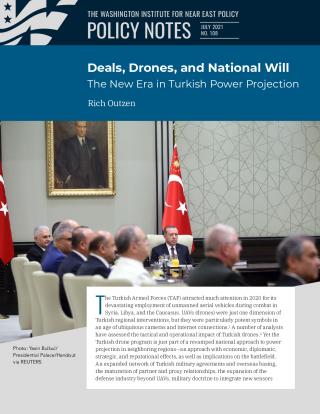Rich Outzen

Turkey has recently pushed the PKK fight from its own turf and blunted challenges in northern Syria, Azerbaijan, Libya, and the Gulf, all while strengthening its defense export sector.
In 2020, military observers took note when the Turkish Armed Forces employed drones to devastating effect in Syria, Libya, and the Caucasus. But this technological achievement must be regarded as just one part of a revamped Turkish approach to regional power projection—a change with economic, diplomatic, strategic, reputational, and battlefield implications. In the past five years, Turkey has notched many associated successes, such as pushing the PKK fight off its own turf and blunting challenges to its interests in northern Syria, Azerbaijan, Libya, and the Gulf. Ankara has also secured significant leverage in other disputes from the Horn of Africa to the Balkans, while strengthening its defense export sector.
As military expert Col. Rich Outzen, U.S. Army (Ret.), makes clear in this tightly argued Policy Note, Turkey’s power projection does not always align with U.S. interests, a reality exemplified by anti-SDF military operations and defense industry cooperation with Russia. But ending the U.S.-Turkey military alliance over such differences is neither productive nor tenable. Instead, America can seek to work with an emergent Turkey in the many cases, from Qatar to Afghanistan, where such collaboration advances U.S. strategic interests.
No comments:
Post a Comment